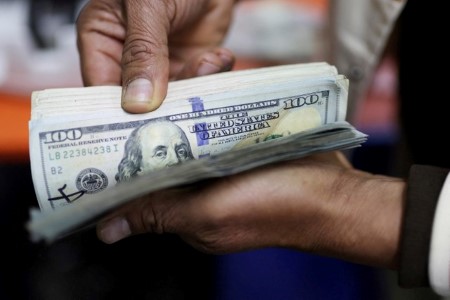




January Economic Update: Growth slows, prices rise
 DOWNLOAD
DOWNLOAD

Inflation Update: Up, up, and away?
 DOWNLOAD
DOWNLOAD

Quarterly Economic Growth Release: Growth takes on a slower pace
 DOWNLOAD
DOWNLOAD


Inflows into global money market funds jump as US tariffs deepen economic fears

Global money market funds witnessed a surge in inflows in the week through March 5 as investors sought safety following the United States’ move to escalate its trade war by slapping steep tariffs on imports from Canada, Mexico, and China, fueling concerns about the potential impact on the global economy.
Investors pumped a massive USD 61.32 billion into global money market funds during the week, following a net USD 39.55 billion worth of purchases in the prior week, data from LSEG Lipper showed.
At the same time, demand for global equity funds dipped to a four-week low as these funds garnered just USD 2.97 billion worth of inflows during the week.
Specifically, US equity funds lost their sheen, witnessing about USD 9.54 billion in net outflows during the week.
On the other hand, European and Asian funds saw robust inflows worth USD 5.87 billion and USD 5.83 billion, respectively, in the same period.
The technology sector experienced a massive USD 2.91 billion worth of outflows, the largest weekly net sales since December 2021.
Industrials and consumer discretionary sectors also witnessed notable outflows worth USD 397 million and USD 367 million, respectively.
Global bond funds were in demand for the tenth week in a row, grossing a net USD 17.02 billion in weekly inflows during the week.
Global short-term bonds drew a net USD 6.4 billion, the biggest amount for a week since January 8. High-yield bond funds also drew a significant USD 3.17 billion in a seventh consecutive week of net purchases.
In the commodities segment, gold and precious metals funds received USD 1.22 billion, marking the fourth consecutive weekly inflow. Energy funds, meanwhile, faced a net USD 114 million worth of sales.
Emerging market data for 29,575 funds revealed equity funds attracted USD 1.52 billion, the third successive weekly inflow. Investors also added a net USD 1.63 billion worth of bond funds, extending net purchases into a ninth consecutive week.
(Reporting by Gaurav Dogra and Patturaja Murugaboopathy in Bengaluru; Editing by Shreya Biswas)
This article originally appeared on reuters.com





 By Reuters
By Reuters